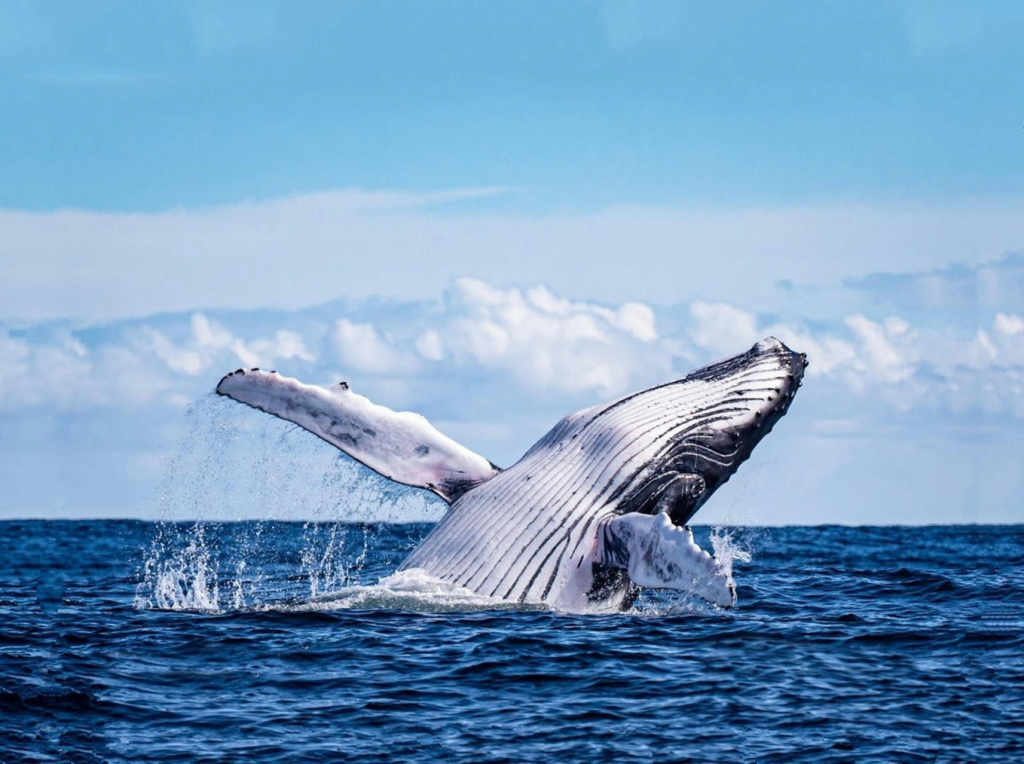In the open ocean, the sight of a killer whale hunting is usually the end of the line for its prey. Orcas are apex predators, known for their speed, coordination, and precision. But in recent decades, scientists and whale watchers have witnessed something extraordinary—massive humpback whales charging into the chaos, disrupting hunts, and, in many cases, saving the intended victims.
Advertisements
These rescues aren’t isolated events. Marine biologists have documented over 100 instances worldwide where humpbacks have interfered in orca attacks. The behavior spans oceans and involves a surprising variety of beneficiaries—seals, sea lions, fish, and even other whale species.

What makes the phenomenon so puzzling is that humpbacks get no clear reward for these acts. They don’t feed on the rescued animals. They don’t appear to gain social status. And they sometimes travel long distances—kilometers, even—to insert themselves into a hunt.
How the Interventions Play Out
Reports describe humpbacks slapping their massive flippers and tails to startle orcas, positioning their bodies between predator and prey, or even lifting smaller animals out of the water on their backs. Some have been seen trumpeting loudly underwater or charging directly at the hunting orcas.
In one widely reported case, a humpback was observed nudging a seal onto its chest and keeping it above water, shielding it from the killer whales circling below. In another, a group of humpbacks relentlessly harassed orcas attacking a gray whale calf, forcing the predators to abandon their pursuit.

Searching for an Explanation
Advertisements
Why would a 40-ton whale risk injury to protect an unrelated species? Scientists have floated several theories, but no consensus has emerged.
The leading idea, championed by marine ecologist Robert Pitman, is that the behavior stems from a misdirected protective instinct. Orcas are known to prey on humpback calves, so adult whales may have evolved to respond aggressively to the sounds and behaviors of an orca hunt. Once triggered, this instinct might override the specifics of the situation—leading humpbacks to intervene even when the target isn’t their own young.
Others speculate that the behavior could hint at complex social intelligence or even a rudimentary form of empathy. Humpbacks are long-lived, social animals with intricate communication systems, and some researchers argue it’s possible they can recognize distress in other creatures and feel compelled to act.

Not Always a Happy Ending
While humpback interference sometimes saves the prey, the outcome isn’t guaranteed. In many observed hunts, especially when the target is a smaller or faster animal, the orcas still succeed. But the repeated and determined nature of the interventions suggests that, for humpbacks, the attempt itself is important—whether or not it changes the result.
A Puzzle That Won’t Go Away

From the icy waters of Antarctica to the coasts of North America, this behavior keeps turning up, leaving researchers both fascinated and baffled. As marine biologist Ari Friedlaender once put it, “It’s like they have a general anti-orca policy.”
Advertisements
Until more is known, the humpback whale remains one of the ocean’s most unexpected vigilantes—an enormous, barnacle-encrusted guardian that sometimes appears out of nowhere to break up nature’s most dramatic hunts.
Whether it’s instinct, empathy, or something in between, one thing is certain: in a world where predator and prey roles are usually fixed, humpbacks have rewritten the script. And somewhere out there, in the vast blue, a whale might already be on its way to crash another orca hunt—just because that’s what humpbacks do.
I find this really interesting. One thought I have is maybe Humpbacks think that its important that Orcas understand they may be brilliant killing machines but they won’t always win and, over time, come to give up on the pursuit or kill more easily of all the larger animals (seals, dolphins, sea lions etc) and just move onto the next prospect. If the Humpbacks often break the Orcas pursuit successfully then maybe their own Humpback calves will be safer in the longterm, because Orcas may eventually just give up the chase/kill quicker or more easily if they think a Humpback adult is getting involved. Because Humpbacks live a long lifetime as a rule, they may see the point in the investment for the longterm in achieving behavioural change among the Orcas. Maybe Humpbacks are capable of such sentience/conscious thought/longterm planning?